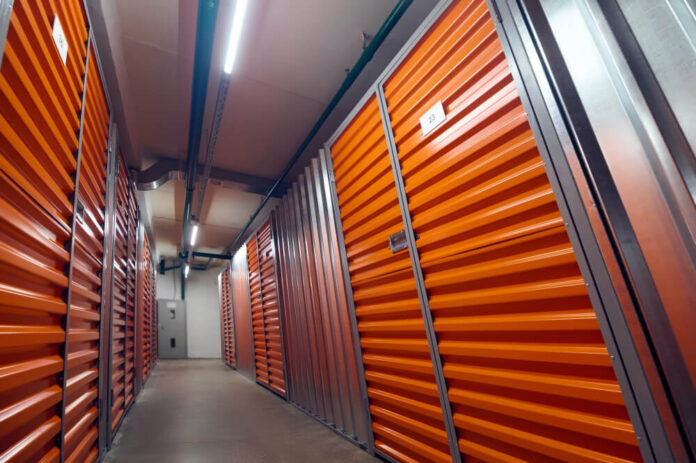Self-storage units offer businesses a smart way to cut overhead costs and boost profitability. Businesses can efficiently address their Singleton storage needs by utilizing self-storage units, offering a cost-effective solution to manage inventory, equipment, or seasonal items. For example, a retailer can store excess inventory during off-seasons, freeing up prime retail space. Similarly, a contractor can keep tools and equipment secure and organized, avoiding clutter in their main workspace. By optimizing storage solutions, companies can reduce unnecessary expenses and enhance operational efficiency, making self-storage a valuable asset in business strategy.
Reducing Overhead Costs with Self-Storage
Self-storage units can significantly lower overhead costs for businesses by providing a flexible and economical solution.
Here’s how:
- Inventory Management: Store excess inventory or seasonal goods, reducing the need for larger, more expensive commercial spaces.
- Equipment Storage: Keep machinery, tools, or supplies safe and organized, freeing up valuable workspace.
- Document Archiving: Safely archive records or files, minimizing the need for costly office space.
- Seasonal Adjustments: Adjust storage needs according to seasonal fluctuations, optimizing space usage.
- Cost-Efficient Leasing: Enjoy the flexibility of short-term leases without committing to long-term, high-rent spaces.
An industry expert notes, “Self-storage units can be a game-changer for businesses looking to streamline operations and cut costs.“
Note: Investing in self-storage can be a strategic move, offering both financial flexibility and operational efficiency. Consider how these units can fit into your business strategy to enhance profitability.
Streamlining Business Operations
Efficient business operations often hinge on having the right resources at the right time. One way to ensure this is by utilizing easily accessible storage units near me. These facilities allow businesses to store inventory, equipment, and documents in a secure and organized manner. By having a nearby storage solution, companies can quickly retrieve items when needed, reducing downtime and improving overall productivity. This convenience not only saves time but also helps manage space effectively within the primary business location.
Additionally, accessible storage units provide flexibility, enabling businesses to scale their storage needs up or down based on demand without being locked into long-term commitments.
Cost-Efficient Strategies for Storage
When managing business overhead costs, self-storage units offer several cost-effective strategies.
Here are three key approaches that help streamline expenses:
- Reduced Rental Costs: Utilizing self-storage units can save money compared to leasing larger office or warehouse spaces. By storing excess inventory, equipment, or documents offsite, businesses can avoid paying for extra square footage at their main location. This leads to substantial savings on rental and utility costs.
- Flexible Space Management: Self-storage units provide the flexibility to adjust storage space based on current needs. Businesses can scale their storage up or down without the constraints of long-term leases or permanent fixtures. This flexibility helps manage costs efficiently, especially during fluctuating market conditions.
- Minimized Operational Disruptions: By keeping essential items in self-storage, businesses can declutter their main workspaces, leading to improved organization and productivity. This setup ensures that valuable operational time is not wasted on searching for or handling stored items, which can translate into financial savings.
In addition to these cost-saving strategies, businesses can benefit from professional services such as movers in Miami. When transitioning inventory or equipment to self-storage units, having reliable moving professionals ensures that the process is efficient and secure.
Research: A study by the Self Storage Association reveals that businesses using self-storage units can reduce overhead costs by up to 25% annually due to lower rental fees and improved operational efficiency. This reduction highlights the financial benefits of integrating well-managed self-storage solutions into business strategies.
Utilizing self-storage units strategically allows businesses to streamline operations, manage costs more effectively, and enhance overall efficiency, all of which contribute to better financial health.
Maximizing Space Efficiency for Businesses
Efficient space management is crucial for any business aiming to reduce overhead costs and enhance operational efficiency. By strategically using self-storage units, companies can declutter their primary workspaces and free up valuable real estate. This practice not only improves the organization but also enhances productivity by keeping essential areas focused on current operations.
“Businesses that effectively use self-storage units often find they can streamline their operations and reduce unnecessary expenses,” an expert in commercial space management explains.
Employing self-storage units for non-essential inventory, archived documents, or seasonal items helps optimize the use of main office or retail space. This approach allows businesses to allocate more space to revenue-generating activities, ultimately contributing to better financial performance and operational success. Implementing these strategies supports a leaner, more cost-effective business model.
Navigating Hidden Costs in Storage Solutions
When selecting a self-storage unit for business use, it’s essential to understand the full range of costs involved to avoid unpleasant surprises. Choosing the right storage solution can save money and ensure that you aren’t paying for features or services you don’t need. Evaluating all aspects of storage options can help in avoiding hidden costs that may arise from less transparent contracts or unexpected fees.
Here are a few critical factors to consider:
- Monthly Fees: Ensure that you understand the base rate and any potential increases.
- Insurance Costs: Check if the storage facility provides insurance or if you need to purchase additional coverage.
- Access Fees: Some facilities may charge extra for 24/7 access or frequent visits.
- Administrative Fees: Be aware of potential fees for setup or account management.
- Climate Control: Depending on what you store, you might need climate-controlled units, which can be pricier.
By carefully assessing these elements, businesses can better manage their budgets and avoid unexpected expenditures. Gain insights on how to avoid hidden costs.
Stat Box: 25% of businesses report hidden fees in their storage contracts that were not disclosed upfront.
Elevating Efficiency Through Strategic Storage
Integrating well-chosen self-storage units into your business strategy can greatly enhance efficiency and reduce overhead. By leveraging these units effectively, companies can streamline their operations and manage their inventory or equipment more cost-effectively.


